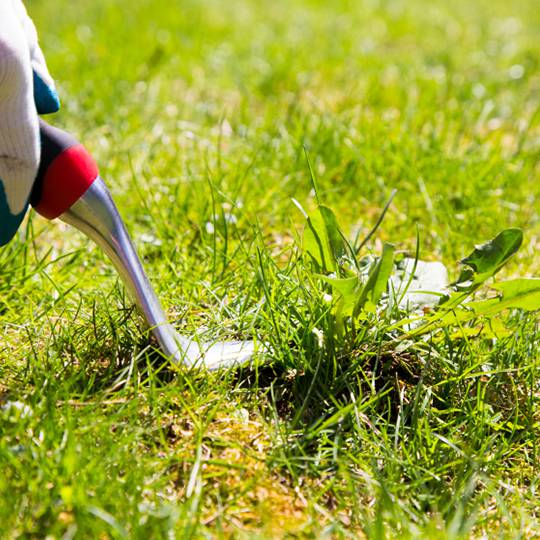How to Remedy Lawn Weeds with Herbicides
Posted
April 14, 2016

You’ve spent time and money to get your landscaping looking just the way you want it. But now you are beginning to notice a few weeds popping up here and there. Over time they start multiplying and suddenly your lawn or garden is not as nice to look at. It’s time to consider herbicides and a weed-controlling program.
Herbicides, or weed killers, are chemical substances used to control and destroy unwanted vegetation. There are many types of herbicides on the market so it is good to know what you are looking for and exactly what kind of weeds you want to kill.
There are two types of herbicides—nonselective and selective. They can work on contact (fast-acting) by destroying only what they touch. Or they can be systemic (slow-acting) and destroy the entire plant when absorbed.
The nonselective, or broad spectrum, herbicide kills all growth and is mostly used in agriculture or large overgrown areas. Most homeowners do not need this kind of chemical. Instead, you will want to choose a selective herbicide that targets a particular type of plant or weed, while leaving your garden or yard intact. Unfortunately, plants can build up a resistance to weed killers, making the process of destroying unwanted growth very challenging.
Some important guidelines to follow:
- The best defense against unwanted weeds is a keeping your lawn healthy and lush with regular mowing and maintenance.
- You must first identify the weeds you wish to wipe out. Some examples are perennial, annual, and broadleaf weeds. Each type of weed requires particular products and applications.
- Read the label carefully. Make sure that the herbicide will tackle the type of weed you need to control and that it will be used properly.
- The herbicide formulas usually come in a concentrated granule or liquid form that will need to be diluted before use. Read the entire label and follow the instructions exactly.
- Always take safety precautions by wearing gloves, goggles, long sleeves, and pants.
- Use the chemicals carefully and sparingly as they are toxic and can be dangerous to you, your family, pets, and even good vegetation.
- If you are not sure about how to use these chemicals or what chemical to use, call your professional lawn-care service and let them use their expertise.
Call us today at 614-808-4446 to find out more about how our lawn-care and weed-control programs can make your lawn look its best.

Download Your FREE Lawn Weed Guide
Before weeds take over your yard this season, learn to identify and prevent them in the first place. Keep your lawn looking great all year!